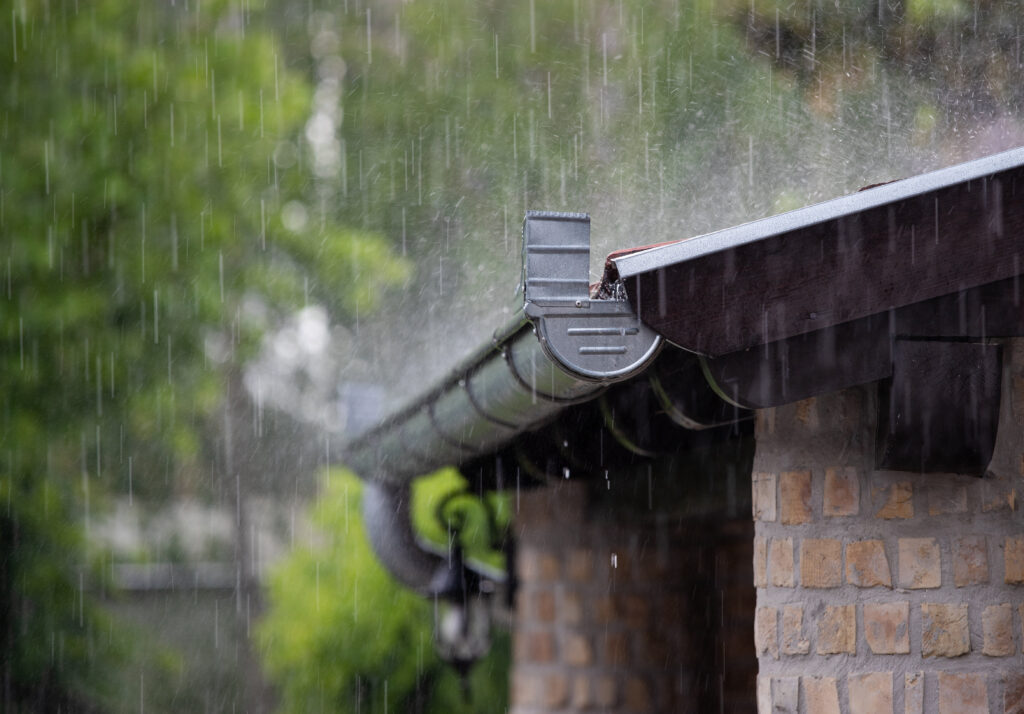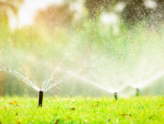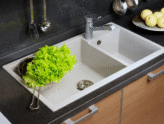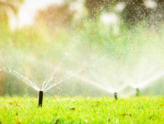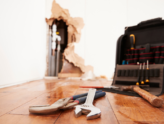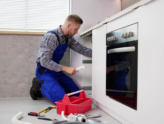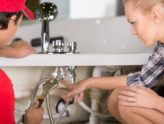Summer Storms & Heavy Rains: Prevent Plumbing Issues
Heavy rainfall and plumbing aren’t a great combination. Summer storms can easily ravage your plumbing system and damage your home, so it’s important to prepare your plumbing for summer.
Is your home plumbing system fortified against the effects of heavy rainfall?
Keep reading as we explore how heavy rains affect your home plumbing system – and what you can do about it. Let’s begin by discussing what heavy rains can do to your system.
What Does Heavy Rainfall Do To Your Plumbing System?
Although the sweet smell of summer rain is a treasured thing, there are some consequences. Let’s explore the negative effects heavy rainfall has on your plumbing system.
Pipes And Drain Blockage
When heavy rainfall occurs, this water is littered with twigs, rocks, and other debris. The debris in rainwater can cause clogging in your drains and pipes. You might notice your sink, shower, or bathtub draining slower than usual. A strong and foul odour might accompany this issue.
You should look out for these signs after heavy rainfall, as you might need to unclog your drains to prevent more significant and costly issues from damaging your home. You should clear debris from your gutters, rooftops, and drains after a summer storm to avoid clogs and their consequences.
Yard Flooding
If there is heavy rainfall, it usually pools and builds up at low points on the ground. If your house is on uneven ground and does not have a proper rainwater drainage system, water can accumulate. Your driveways, walkways, basements, or crawl spaces could become flooded.
Not only will this rot your furniture and ruin your driveway, but it can lead to mold and structural damage. It is important to clear your storm drains to prevent yard flooding and keep your home safe.
Burst Pipes
When there is heavy rainfall, the soil shifts. When this happens, the soil supporting your underground pipes can move, weakening them. The heavier, denser wet mud can also increase the pressure on your pipes, creating further risk. If your plumbing system is quite old, or there is extremely heavy mud, your line could burst.
To check if this has happened following heavy rainfall, you should look for low water pressure, debris in your faucet, or water discolouration. Should you notice any of these issues, it’s important to replace your pipes right away with the help of an experienced plumber.
Water Backup
If the rainfall is quite extreme, it can, unfortunately, affect your sewage lines. This can cause hazardous waste material to back up into your home. Your safety will be compromised, so vacating your home and calling your plumber is important. Sometimes, you can only wait for the rain to dissipate before the sewer backup stops.
A plumber can help you to avoid water backup by installing check valves in your basement plumbing structure. A sump pump will also help to eliminate excess water and prevent disastrous sewage backups in your home.
Exhausting The Sump Pump
Your sump pump turns on when there is too much water in your basement, protecting your property from water backups. If there is significant wastewater, your sump pump may become overworked, leading to failure or breakdowns. You should ensure you have more than one sump pump if you live in an area susceptible to heavy downpours.
Call Caldwell Plumbing To Prepare Your Plumbing System For Summer Storms
When there is heavy rainfall, it can have devastating effects for your home’s plumbing system. While you can prepare your system, some issues are beyond your control. After a summer storm, it’s important to check that water is draining from your home properly and to ensure it is clean and pressurized.
If you reach out to us at Caldwell Plumbing, we can help you to prepare your home for summer storms and heavy rainfall. Our friendly and reliable team will assess your plumbing system and any preventative measures you can take.

